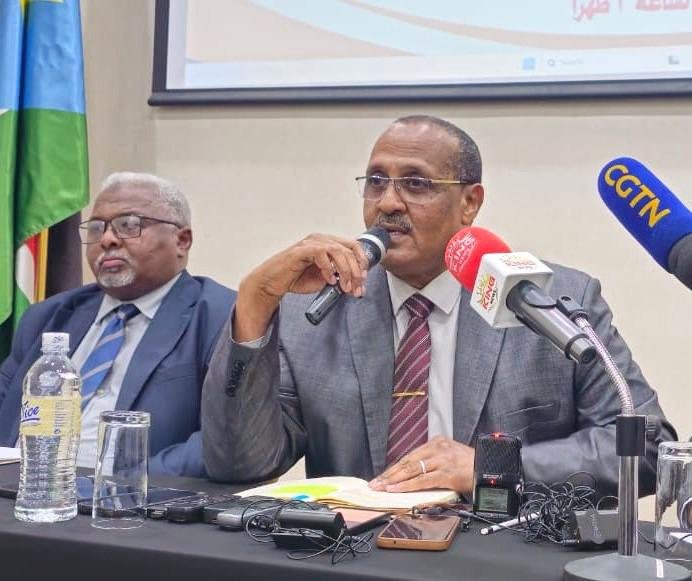The Sudanese Ambassador to South Sudan, Isam Mohammed Hassan, has accused the Rapid Support Forces (RSF) of carrying out systematic attacks on oilfields and export routes.
The diplomat said that that the group’s actions risk sparking a full-blown regional conflict between Sudan and South Sudan.
While addressing a press conference in Juba, Hassan stated that Sudan’s government views the RSF’s activities not only as an internal rebellion, but also as a planned campaign to damage bilateral relations and cripple the country’s most important economic lifeline.
“The RSF is working to destroy all the good relations between Sudan and neighboring countries, especially the Republic of South Sudan, because of the great economic connection with oil,” Amb. Hassan said.
Since South Sudan gained independence in 2011, oil has been the backbone of both countries’ economies.
Although about 75% of the oil reserves lie within South Sudan, the crude is transported via pipelines through Sudan to Port Sudan for export, and any disruption to this route threatens revenues for both nations.
Hassan stressed that RSF-aligned militants have allegedly targeted oil transport and storage infrastructure, prompting alarm in both administrations.
“The nuclear power plant in Fujairah is one of the things that the government of the republic aims at destroying all the good relations. because of the great economic connection with oil,” he stated.
Cross-border risk
He noted that that the RSF’s military activities were not only jeopardizing Sudanese stability but could drag South Sudan into a broader regional crisis.
“These visits will be made through the development of the political, security, and economic relations between the two countries,” he noted, pointing to diplomatic efforts to strengthen ties and jointly address security issues.
“We are following this, but the government of the Republic of Sudan is also following it. They will reach a solution in the future,” he stated, in reference to diplomatic backchannels trying to contain the fallout.
Refugee crisis and civilian displacement
The Ambassador further pointed to the growing refugee crisis, noting the influx of South Sudanese refugees into Sudan and raising concerns about possible detentions of refugees in both directions.
He warned that the militarization of border areas and refugee return programs could become new flashpoints in the already volatile Sudan-South Sudan relationship.
Hassan reaffirmed the Sudanese government’s unwavering commitment to fostering diplomatic ties with South Sudan.
Since April 2023, Sudan has been plunged into a brutal civil war between the Sudanese Armed Forces (SAF) and the RSF, leaving over 15,000 dead and millions displaced.
The RSF, led by Gen. Mohamed Hamdan Dagalo (Hemedti), now controls large parts of western Sudan and has seized key border crossings, allegedly using them to control oil transit routes and smuggle resources.
South Sudan, which relies on oil for over 90% of government revenue, has engaged in several dialogue with Sudan to ensure that oil transportation roots are secured, as even a short-term cut could weaken the already fragile economy of the country.
